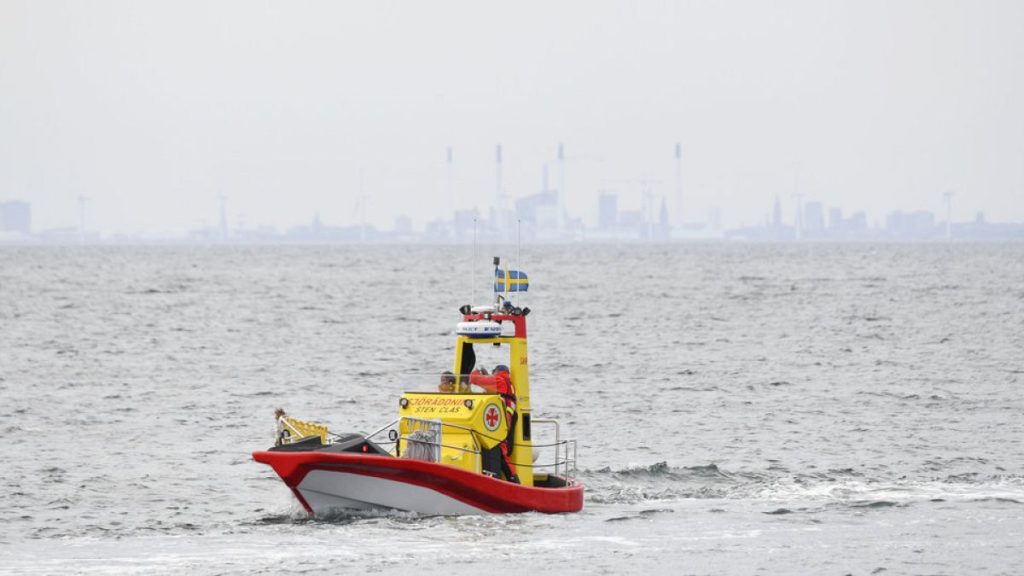The Baltic Sea has become the focal point of escalating concerns regarding the security of critical undersea infrastructure following the reported damage to a data cable connecting Sweden and Latvia. This incident marks the fourth such occurrence in the region within the past two months, raising alarms about potential sabotage and the vulnerability of vital communication links. Swedish Prime Minister Ulf Kristersson confirmed the damage, indicating that the affected cable is owned by a Latvian entity. He emphasized close communication with Latvian Prime Minister Evika Silina regarding the situation, highlighting the collaborative efforts to address the issue. This latest incident follows a string of similar reports involving undersea cables connecting Lithuania and Sweden, Germany and Finland, and Estonia and Finland. The repeated nature of these events has fueled speculation about deliberate interference and the potential targeting of critical infrastructure in the region.
The string of incidents underscores the growing geopolitical tensions surrounding the Baltic Sea, particularly in light of the ongoing conflict in Ukraine. The region’s strategic importance, combined with the vulnerability of underwater cables, makes it a prime target for potential acts of sabotage aimed at disrupting communication and data transfer. The increasing reliance on undersea cables for internet connectivity, financial transactions, and various other essential services further amplifies the impact of such disruptions. The repeated damage raises serious questions about the effectiveness of existing security measures and the need for enhanced protection of critical infrastructure.
European Commission President Ursula von der Leyen responded to the incident by expressing “full solidarity” with the Baltic Sea countries and reaffirming the EU’s commitment to bolstering the security of critical infrastructure. She emphasized that the resilience and security of these crucial networks are paramount, and that the Commission is working to improve detection, prevention, and repair capabilities. This statement reflects the growing recognition of the need for a coordinated and comprehensive approach to addressing the escalating threat, both within the EU and with international partners. The focus on collaboration underscores the transboundary nature of the challenge and the importance of joint efforts to safeguard essential infrastructure.
The repeated damage to undersea cables in the Baltic Sea is not merely a technical issue; it carries significant geopolitical implications. The region’s proximity to Russia, coupled with its strategic location as a gateway between East and West, makes it a particularly sensitive area. The incidents raise concerns about potential Russian involvement, although concrete evidence remains elusive. However, the escalating tensions between Russia and the West, exacerbated by the war in Ukraine, contribute to a climate of suspicion and underscore the need for heightened vigilance in protecting critical infrastructure. These incidents could further escalate tensions in the region, potentially leading to a more pronounced security posture and increased defense spending.
In response to the growing threat to undersea infrastructure, NATO Secretary General Jens Stoltenberg (not Mark Rutte as initially reported) announced the launch of a new mission in the Baltic Sea. This initiative, announced in January 2024 from Helsinki, aims to enhance the protection of critical undersea assets from potential sabotage. The mission will involve the deployment of new ships, dedicated aviation, and advanced technology, including a fleet of underwater drones, to monitor and safeguard vital infrastructure. This represents a significant step towards bolstering security in the region and demonstrates NATO’s commitment to addressing the emerging threat. The use of underwater drones signifies a technological advancement in surveillance and protection capabilities, allowing for more effective monitoring of underwater activities.
The repeated damage to undersea cables in the Baltic Sea serves as a stark reminder of the vulnerability of critical infrastructure in an increasingly interconnected world. These incidents highlight the need for robust security measures, enhanced surveillance capabilities, and international cooperation to safeguard vital communication networks. The geopolitical implications of these incidents are significant, particularly in the context of heightened tensions between Russia and the West. The response from the EU and NATO, emphasizing solidarity and increased security measures, reflects the growing recognition of the importance of protecting these vital arteries of global communication and economic activity. The ongoing investigation into the cause of the damage is crucial in determining the appropriate course of action and preventing future incidents. The future security landscape of the Baltic Sea will undoubtedly be shaped by these events, emphasizing the need for continuous vigilance and adaptation to emerging threats.

